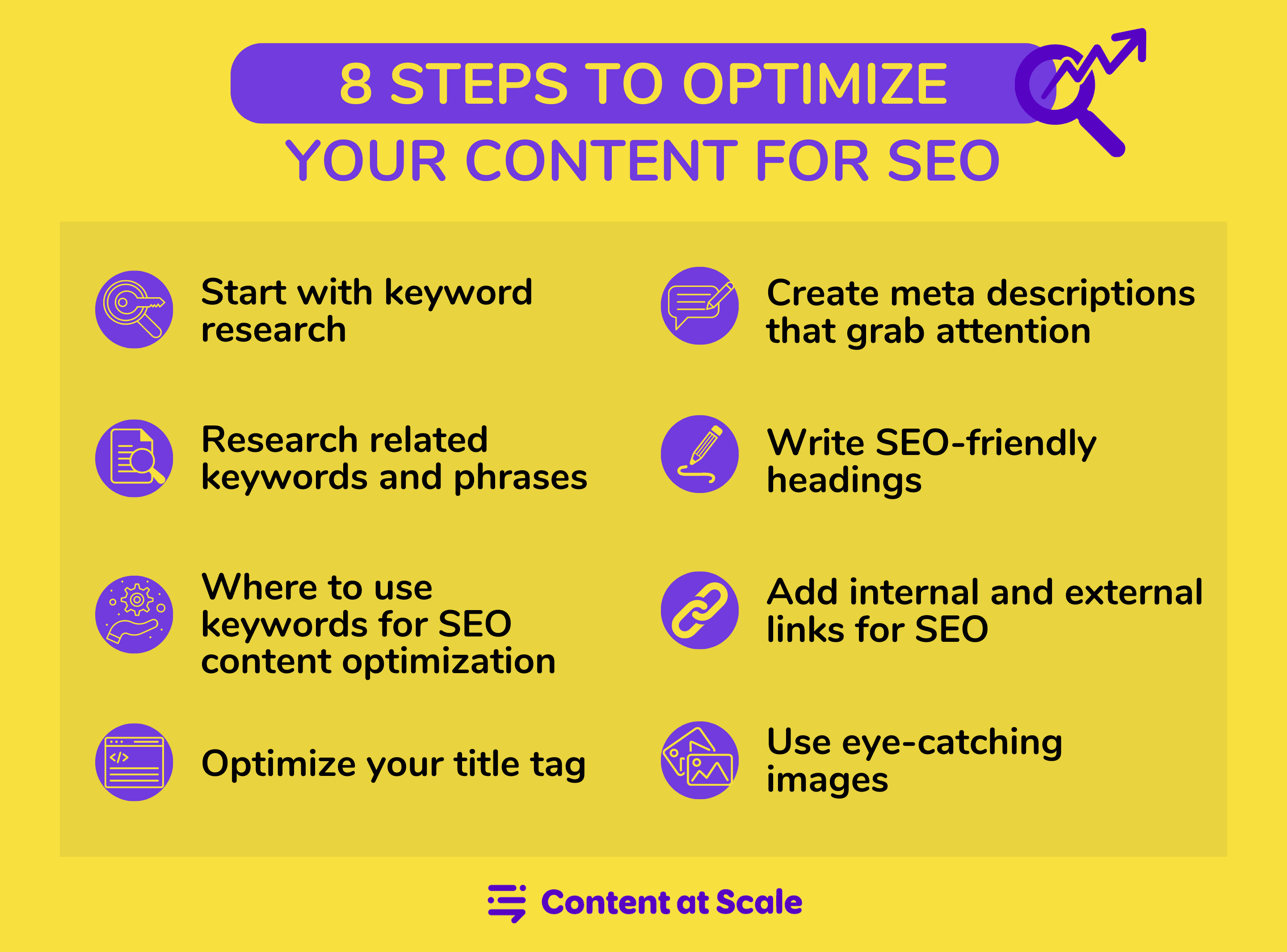
Mastering SEO: How to Create a Winning Content Strategy for Optimal Results
In today’s digital landscape, mastering SEO is essential for businesses looking to increase their online visibility and drive organic traffic to their websites. A key component of successful SEO is creating a winning content strategy that aligns with search engine algorithms and user intent. In this guide, we will explore how to create a winning content strategy for SEO that delivers optimal results. By understanding the principles of SEO and implementing best practices in content creation, you can enhance your website’s ranking on search engine results pages and attract more qualified leads to your business.
Keyword research and analysis are essential components of any successful SEO strategy. By understanding what keywords your target audience is using to search for your products or services, you can optimize your content to reach a wider audience and drive more traffic to your website.
To conduct effective keyword research, start by brainstorming a list of relevant terms and phrases related to your business. Use keyword research tools like Google Keyword Planner, SEMrush, or Ahrefs to identify popular keywords with high search volume and low competition. Look for long-tail keywords (phrases with three or more words) that are specific to your niche and have the potential to attract qualified leads.
Once you have identified your target keywords, incorporate them strategically into your website content, including headings, meta tags, and body copy. Monitor the performance of your chosen keywords regularly and make adjustments as needed to stay ahead of the competition. By consistently optimizing your content with the right keywords, you can improve your search engine rankings and attract more organic traffic to your site.
When it comes to optimizing your website for search engines, on-page SEO best practices play a crucial role in improving your rankings and visibility. By focusing on key elements such as keyword optimization, meta tags, and quality content, you can enhance your website’s performance and attract more organic traffic.
Start by conducting thorough keyword research to identify relevant terms that your target audience is searching for. Incorporate these keywords strategically throughout your website’s content, including in titles, headings, and meta descriptions. Additionally, optimize your meta tags, including title tags and meta descriptions, to accurately describe the content on each page and entice users to click through to your site.
Quality content is also essential for on-page SEO success. Create engaging, informative, and original content that addresses the needs and interests of your target audience. Make sure your content is well-organized, easy to read, and includes relevant keywords naturally. By following these on-page SEO best practices, you can improve your website’s search engine rankings and drive more traffic to your site.
Off-page SEO strategies are crucial for enhancing the visibility and authority of your content on the web. By focusing on external factors such as backlinks, social signals, and online reputation management, you can boost your website’s credibility and rankings in search engine results pages. Building high-quality backlinks from reputable websites is a key off-page technique that signals to search engines that your content is trustworthy and valuable. Engaging with your audience on social media platforms and encouraging shares and likes can also help increase your content’s reach and relevance.
Additionally, managing your online reputation through strategies like online reviews and mentions can further establish your brand as a reliable source of information. By consistently monitoring and improving these off-page elements, you can strengthen your content optimization efforts and drive more organic traffic to your website. Remember, off-page SEO is about building relationships and connections with other websites and users to establish credibility, trust, and authority in the digital landscape.
When it comes to creating content for your website, there are a few key tips to keep in mind for SEO success. Firstly, it’s important to do thorough keyword research to understand what terms your target audience is searching for. Incorporate these keywords strategically throughout your content, including in the title, headings, and body of your text. This will help search engines understand the relevance of your content to users’ queries.
Additionally, make sure your content is high-quality and engaging for readers. This means providing valuable information that answers their questions or solves their problems. Use a mix of text, images, and videos to keep users interested and on your page longer. Finally, don’t forget to optimize your meta tags, including meta titles and descriptions, to improve your click-through rate in search engine results pages.
By following these content creation tips and consistently producing valuable, optimized content, you can improve your website’s SEO performance and attract more organic traffic. Remember to monitor your results regularly and make adjustments as needed to continue driving success.
Understanding search engine algorithms is crucial for optimizing your content strategy and achieving high rankings on search engine results pages (SERPs). Search engine algorithms are complex formulas used by search engines like Google to determine the relevance and quality of a webpage in relation to a user’s search query. These algorithms consider various factors, such as keywords, backlinks, user experience, and website authority, to determine the ranking of a webpage.
To optimize your content strategy for search engine algorithms, it’s important to focus on creating high-quality, relevant content that is optimized for specific keywords. Conduct keyword research to identify the terms and phrases your target audience is searching for, and strategically incorporate these keywords into your content. Additionally, prioritize user experience by ensuring your website is easy to navigate, loads quickly, and provides valuable information to visitors. By understanding search engine algorithms and implementing best practices in your content strategy, you can increase your visibility and drive organic traffic to your website.
Link building is a crucial aspect of SEO that involves acquiring backlinks from other websites to improve your site’s authority and visibility in search engine results. By strategically obtaining links from reputable and relevant websites, you can signal to search engines that your content is valuable and trustworthy. This can lead to higher rankings and increased organic traffic to your site.
To effectively build links for improved SEO, focus on creating high-quality, relevant content that naturally attracts links from other websites. Additionally, reach out to industry influencers, bloggers, and websites in your niche to request backlinks or collaboration opportunities. Consider guest posting on reputable sites, participating in online communities, and leveraging social media platforms to promote your content and attract more links. Remember that quality is key when it comes to link building – prioritize getting links from authoritative websites with high domain authority to maximize the impact on your SEO efforts.
Implementing local SEO tactics is crucial for businesses looking to improve their online visibility and attract more customers in their area. Local SEO involves optimizing your website and online presence to show up in local search results when users are looking for products or services near them. This can include creating a Google My Business profile, optimizing your website with local keywords, and getting listed in online directories and review sites.
By implementing local SEO tactics, businesses can increase their chances of being found by potential customers who are searching for their products or services in a specific location. This can lead to more foot traffic, phone calls, and website visits from local users who are actively looking to make a purchase. Additionally, local SEO can help businesses stand out from competitors in the area and establish themselves as a trusted and reliable option for customers. Overall, investing in local SEO can have a significant impact on a business’s online visibility and ultimately drive more traffic and sales.
Measuring and analyzing SEO performance is crucial for ensuring that your content strategy is driving optimal results. By tracking key metrics such as organic traffic, keyword rankings, and conversion rates, you can gain valuable insights into the effectiveness of your SEO efforts. Analyzing this data allows you to identify areas for improvement and make informed decisions to optimize your content strategy.
One of the most important aspects of measuring SEO performance is monitoring your website’s search engine rankings. By tracking the positions of your target keywords in search engine results pages (SERPs), you can gauge the visibility of your content and identify opportunities to improve your rankings. Additionally, analyzing organic traffic trends can help you understand how well your content is resonating with your target audience and driving traffic to your website.
In summary, measuring and analyzing SEO performance is essential for evaluating the success of your content strategy and making data-driven optimizations. By regularly monitoring key metrics and using this information to refine your approach, you can improve your website’s visibility, attract more organic traffic, and ultimately drive better results for your business.
When creating a content strategy for mobile SEO, it is crucial to optimize your website for mobile devices to ensure a seamless user experience. This involves creating mobile-friendly content that is easily accessible and fast-loading on smartphones and tablets. Additionally, using responsive design that adapts to different screen sizes can improve your site’s ranking on search engines.
Incorporating relevant keywords and optimizing meta tags for mobile searches is essential for driving organic traffic to your site. Mobile users often search for information on-the-go, so tailoring your content to answer their immediate needs can boost your visibility in search results. Furthermore, focusing on local SEO by including location-based keywords can help attract nearby customers searching for products or services in their area. By considering these mobile SEO factors in your content strategy, you can enhance your website’s performance and attract more organic traffic.




